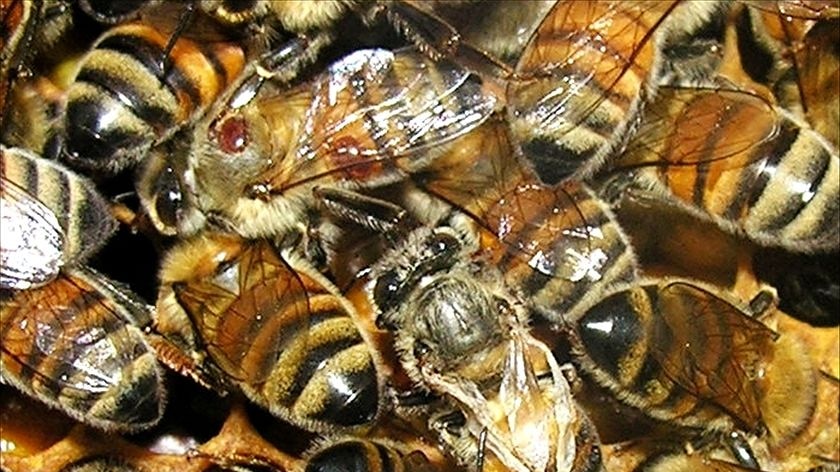



Article by: Hari Yellina
For beekeepers impacted by the NSW varroa mite outbreak, a $18 million compensation fund has been established. The Commonwealth and state governments, as well as sectors that depend on pollination, supported the accord, which will apply to both professional and amateur apiarists. A national response strategy to remove the parasite from NSW was also checked off by the panel. More than 15 million bees have been killed as of July 11th, 1567 hives having been put to death. According to the agreement, registered commercial beekeepers will be compensated for all equipment, hives, and bees that were destroyed during the eradication operation, as well as the costs of honey, according to federal agricultural minister Murray Watt. Mr. Watt declared, “We are absolutely committed to the national response strategy.”
“We all believe that eliminating the varroa mite from our coasts is scientifically possible and commercially advantageous because it poses the greatest danger to our honey bee and pollination industries.” The major objective, according to NSW Agriculture Minister Dugald Saunders, is eradication, which is still doable because of the Department of Primary Industries’ initial response and contact tracing activities. In order to discover and eliminate any additional instances, Mr. Saunders added, “We still have an unbroken chain of infected buildings and have intensive surveillance measures in place.” Feuvre emphasised the significance of compensating recreational beekeepers in order to deter others from flouting biosecurity regulations. “The success of the eradication effort will be ensured by the agreement to give compensation fees to our members,” he stated.
Beekeepers outside of eradication zones can now work their hives, removing frames for honey extraction and adding empty supers to full hives, despite a state-wide emergency order in NSW that prevents hives from being transported. In order to manage the risk associated with approaching spring pollination events across a variety of agricultural commodities, the NSW government will hire an additional 26 compliance and surveillance officers.